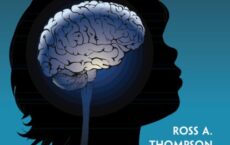
We write this blog knowing the 2024 presidential election will be a rematch of the 2020 contest between Donald Trump and Joe Biden. We are not fully aware, though, how changes in the political landscape from 2020 to 2024 will alter how citizens make decisions at the ballot box. In our book, Choices in a […]
Read MoreI have described writing my forthcoming book as something I needed to do, almost like an itch that needed to be scratched. But now that it is finished, I have very mixed feelings about its imminent publication. The bravery and the enthusiasm project have long since evaporated and replaced by a combination of nerves and […]
Read MoreIntuition is an ultimate experience, beyond words: We know more than we can tell. This phenomenon upsets many who believe in rationality as a purely conscious activity. People often confuse intuition with a sixth sense or the arbitrary judgments of inept decision makers. But intuition is neither caprice nor irrationality; it is unconscious intelligence based […]
Read MoreI am passionate about providing students who may struggle with their studies cognitive and motivational guidance by advising on suitable study skills strategies that are: practical, appropriate for how the individual learner processes information, and effective for helping the student overcome barriers connected to the University environment. My working experience as a specific learning difficulties […]
Read MoreAs clinicians involved in training and supervision, we have observed in others and ourselves how starting psychotherapy with a patient is often anxiety-provoking for both parties. This experience may leave new therapists in particular feeling de-skilled. Learning a new style of working can add to a feeling of being at sea. It is perfectly understandable […]
Read MoreBlog #4 in the ‘Psychology and its Antecedents’ series On October 16th in the United States, the Public Broadcasting Service premiered a new Ken Burns film, The American Buffalo. This program examines the story of the buffalo, or American Bison, from its emergence as a modern species about 10,000 years ago, at about the same […]
Read MoreThe events of 2020 are unforgettable. What do you most remember when you look back on this time? Surely, the COVID-19 pandemic comes to mind.
Read MoreScience informs public understanding on everything from climate change to cancer treatments to child development. But how does it do so, and who determines what the public learns? Does science infiltrate public awareness from the work of science journalists reporting on new discoveries in places like the New York Times or the BBC? Or from the efforts of […]
Read MoreWe write this blog knowing the 2024 presidential election will be a rematch of the 2020 contest between Donald Trump and Joe Biden. We are not fully aware, though, how changes in the political landscape from 2020 to 2024 will alter how citizens make decisions at the ballot box. In our book, Choices in a […]
Read MoreI have described writing my forthcoming book as something I needed to do, almost like an itch that needed to be scratched. But now that it is finished, I have very mixed feelings about its imminent publication. The bravery and the enthusiasm project have long since evaporated and replaced by a combination of nerves and […]
Read MoreIntuition is an ultimate experience, beyond words: We know more than we can tell. This phenomenon upsets many who believe in rationality as a purely conscious activity. People often confuse intuition with a sixth sense or the arbitrary judgments of inept decision makers. But intuition is neither caprice nor irrationality; it is unconscious intelligence based […]
Read MoreI am passionate about providing students who may struggle with their studies cognitive and motivational guidance by advising on suitable study skills strategies that are: practical, appropriate for how the individual learner processes information, and effective for helping the student overcome barriers connected to the University environment. My working experience as a specific learning difficulties […]
Read MoreAs clinicians involved in training and supervision, we have observed in others and ourselves how starting psychotherapy with a patient is often anxiety-provoking for both parties. This experience may leave new therapists in particular feeling de-skilled. Learning a new style of working can add to a feeling of being at sea. It is perfectly understandable […]
Read MoreBlog #4 in the ‘Psychology and its Antecedents’ series On October 16th in the United States, the Public Broadcasting Service premiered a new Ken Burns film, The American Buffalo. This program examines the story of the buffalo, or American Bison, from its emergence as a modern species about 10,000 years ago, at about the same […]
Read MoreThe events of 2020 are unforgettable. What do you most remember when you look back on this time? Surely, the COVID-19 pandemic comes to mind.
Read MoreScience informs public understanding on everything from climate change to cancer treatments to child development. But how does it do so, and who determines what the public learns? Does science infiltrate public awareness from the work of science journalists reporting on new discoveries in places like the New York Times or the BBC? Or from the efforts of […]
Read MoreKeep up with the latest from Cambridge University Press on our social media accounts.
University of California, Los Angeles
North Carolina State University
Carter is Charles Howard Candler Professor of Psychology and interim Dean at Oxford College of Emory University, and the author of Psychopathology and Buzz!.
Charlotte H. Markey, Ph.D., is a Psychology Professor and Director of the Health Sciences program at Rutgers University, New Jersey.
Elizabeth A. Daniels, Ph.D., is an Assistant Professor of Psychology at the University of Colorado, Colorado Springs.
Meghan M. Gillen, Ph.D., is an Associate Professor of Psychology at Pennsylvania State University, Abington.
Order on the Edge of Chaos
Order on the Edge of Chaos
Order on the Edge of Chaos
The Neuroscience of Intelligence
The Reader\\\'s Brain
Constructive Controversy
Clinical Perspectives on Autobiographical Memory
Cognition: A Neuroscience Approach
The Psychology of Creative Writing
Psychology of the Digital Age
Colours and Colour Vision
Author of The Late Sigmund Freud
Philip T. Yanos, Ph.D., is Professor of Psychology at John Jay College, City University of New York.
Michael Filimowicz is a multi-disciplinary artist and researcher working at the overlapping boundaries of media forms.
Merim Bilalić is the author of The Neuroscience of Expertise
Stanley O. Gaines, Jr. (Brunel University London) is the author of Personality and Close Relationship Processes.
David R. Olsen is University Professor Emeritus at the University of Toronto and the author of The Mind on Paper.
Dr. Fiona Kate Barlow is a social psychologist specialising in the study of race relations.
R. Keith Sawyer is a co-editor of Reflections on the Learning Sciences
Michael A. Evans is a co-editor of Reflections on the Learning Sciences
Martin J. Packer is a co-editor of Reflections on the Learning Sciences
Cognitive Neuroscience of Memory
Statistics Using Stata
Statistics Using Stata
Social Development as Preference Management
Why Life Speeds Up As You Get Older
The Normal Personality
Benign Bigotry
Animal Homosexuality
The Mind of Jihad
On Scandal
I Was Wrong
The Deepening Darkness
Patriarchal Religion, Sexuality, and Gender
Library marketing associate
Publicist
The Myth of the Ethical Consumer
The Myth of the Ethical Consumer
The Myth of the Ethical Consumer
Confronting Cyber-Bullying
Extraordinary Beliefs
Inez De Florio author of Effective Teaching and Successful Learning.
Does Your Family Make You Smarter?
The Anthropology of Childhood
Early Social Interaction
Hoax Spring Eternal
Ethical Challenges in the Behavioral and Brain Sciences
Ethical Challenges in the Behavioral and Brain Sciences
Cybercrime: The Psychology of Online Offenders
Cybercrime: The Psychology of Online Offenders
Beyond Belief
To receive updates on Psychology news from Cambridge University Press and Fifteen Eighty Four, please join our email list below. We will not disclose your email address to any third party









